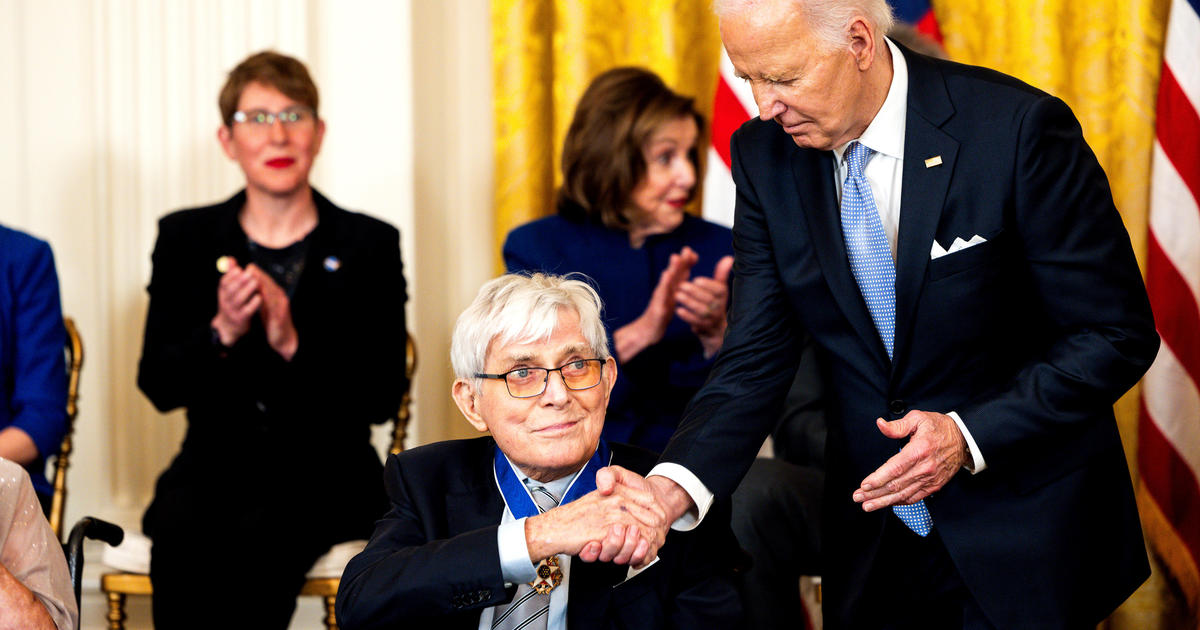Senate Passes President Biden's $1.9 Trillion COVID Relief Bill; What Does It Mean For You?
CHICAGO (CBS Chicago/CBS News) -- The U.S. Senate on Saturday approved President Joe Biden's $1.9 trillion coronavirus relief package.
As CBS 2's Marissa Parra reported, this newest step comes as 11.4 million Americans are at risk of losing their unemployment benefits in the coming weeks.
The final vote was 50-49, with all Democrats voting in favor of the bill and all Republicans voting against it. The passage of the bill was met with cheers and applause from Democrats, celebrating the passage of one of Mr. Biden's key priorities. Vice President Kamala Harris did not need to visit the Capitol to break any ties, as GOP Senator Dan Sullivan (R-Alaska) left due to a family emergency on Friday.
Democrats took a victory lap after the passage of the bill, with Senate Majority Leader Charles Schumer (D-New York) telling reporters after the vote that "it's a great day for this country." Senate Budget Committee Chair Bernie Sanders (I-Vermont) called the bill "the most significant piece of legislation to benefit working families in the modern history of this country."
President Biden dubbed the plan "historic" during an address on Saturday.
"For over a year the American people were told they were on their own," he said, and later added, "This nation has suffered too much for much too long, and everything in this package is designed to relieve the suffering and to meet the most urgent needs of the nation."
This was the Senate version of the relief bill the House passed their version last week.
This Senate Bill does not include an increase to federal minimum wage. So what does it include?
For stimulus checks, the bill narrows the eligibility. But instead of $600 checks, it will be $1,400 checks – which will go to people who earn less than $75,000 a year and married couples who earn less than a combined $150,000.
President Biden said this means a typical middle-class family of four will get $5,600.
"That means the mortgage can get paid. That means maintaining the health insurance you have. It's going to make a big difference in so many lives in this country," Mr. Biden said.
In looking at the changes between the Senate and House version, this means this time millions of families will not qualify. But the changes also mean this time, dependent adults like college students will.
As for unemployment benefits, they're trimming the federal boost. This version calls for a $300 federal boost to weekly jobless payments through Sept. 6, and the extension of pandemic unemployment benefits programs like Pandemic Unemployment Assistance for freelancers.
This comes days after CBS 2 brought you the stories of contract workers having their unemployment benefits cut off without notice. But it was not clear Saturday whether PUA benefits that were cut off for people like Catherine will be reinstated yet.
CBS 2 Political Investigator Dana Kozlov earlier this week talked with one woman named Catherine who said it happened to her. The single mom – who did not want her last name revealed – got a notice from the Illinois Department of Employment Security informing her the "the High Unemployment Period... had ended, and the additional seven benefit weeks are no longer available.
The notice also stated Catherine has "exhausted the maximum number of weeks" and benefits are "no longer payable" effective the week of Feb. 21. Not only was it a shock, but Catherine said her account is still listed as active, shows a balance of $11,286, and shows she has six weeks of remaining benefits.
"So I'm losing out on, you know, six weeks – plus an additional $900 from the federal supplement," she said.
The bill also includes a child allowance of up to $3,600 per family, $350 billion in aid to state and local governments, and $14 billion for vaccine distribution.
What happens next? The bill heads back to the House of Representatives for a vote, and it could make its final pass by early next week.
If the bill is approved by the House, it will then go to Mr. Biden's desk for his signature. Schumer expressed confidence that the Senate version of the bill would pass in the House.
"They feel like we do, we have to get this done," he said.
Mr. Biden thanked the American people for their "overwhelming bipartisan support" of the package, without which "this would not have happened," he said.
The final vote came after an arduous "vote-a-rama," in which the Senate debated, considered and voted on 39 amendments over a 25 hour period. The process was initially delayed by a deadlock involving Senator Joe Manchin, moderate from West Virginia who has become a critical player in the evenly divided Senate.
On Friday evening, Senate Democrats reached a deal accepted by Manchin, after he had an extended meeting with Schumer. The compromise amendment extended the additional unemployment insurance benefits through September 6, makes the first $10,200 of unemployment insurance benefits non-taxable for households with incomes under $150,000, and extends tax rules regarding excess business loss limitations to 2026.
The compromise amendment was approved by a vote of 50 to 49 shortly after 1 a.m. It was almost identical to an amendment proposed under a deal reached Friday morning by progressives and moderates, with the only change being the income limit for the non-taxable benefits.
Mr. Biden stressed during his address Saturday that the deal extended assistance for the 11 million Americans who lost jobs due to the pandemic — and whose benefits were "about to expire," he said.
CBS News' Grace Segers contributed to this report.



